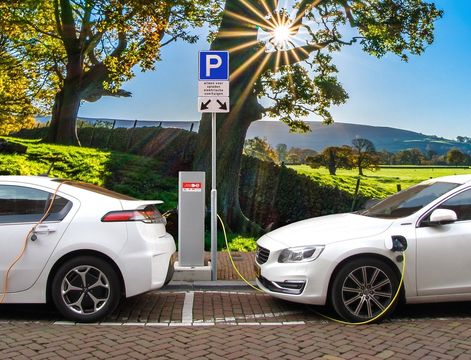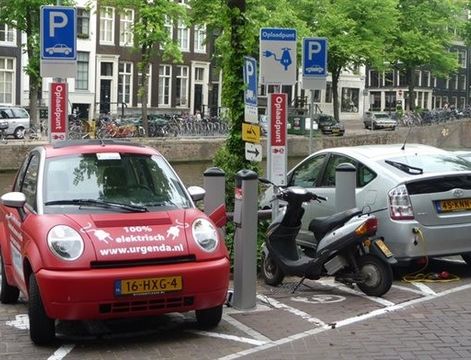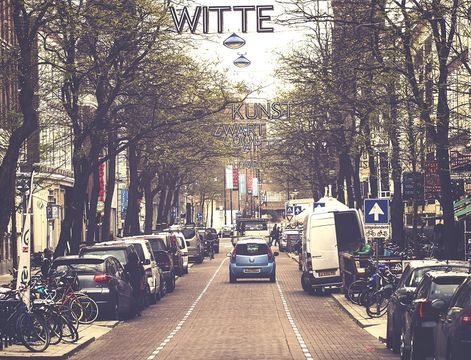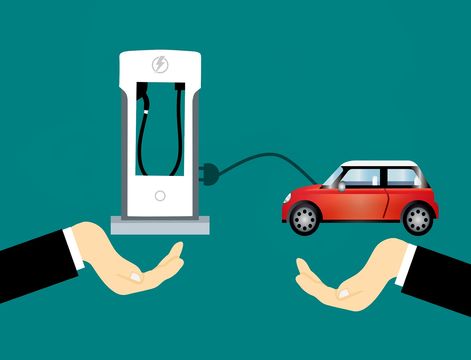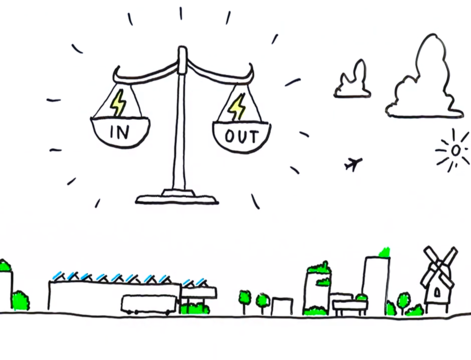11 May 2018: For the 3rd time the Barcelona Chamber of Commerce has invited regional stakeholders of the energy and mobility sector to its facilities to share with them the state of play of EV Energy project and discuss electric mobility policies and development in Catalonia.
This time present, representatives from: ICAEN (Catalan Energy Institute), LIVE platform (private-public platform for sustainable mobility), CEEC (Catalan Energy Efficiency Cluster), IREC (Catalonia Institute for Energy Research), ATM (Metropolitan Transport Authority Barcelona), the RIS3CAT Low Emissions Mobility Community Coordinator and the RIS3CAT Energy Community coordinator as well as independent experts and consultants.
The centre of the discussion was again how to potentially transfer the good practice “Smart Charging Amsterdam” * in the form of a pilot action to the Catalan context - a venture rather difficult given the current legal framework and state of adoption of electric mobility in the territory.
Nevertheless, constructivism was the moto of the day and under this vibe emphasis in the discussion was put not only on obstacles and barriers at local level, but also on opportunities and possible starting points how to open up the way for a pilot implementation and in a broader sense for an energy system that allows for electric vehicles to play a role in it as “mobile energy storage facilities”. In other words, getting closer to what EV Energy pictures as a first step towards a future energy and mobility system.
Here some of the points raised during the discussion:
Barriers detected:
- Regulatory: interaction with the grid is not possible to date, exception for electricity grid regulation would be necessary for a pilot (as it is the case e.g. in Belgium and Germany)
- Social: occupation of public spaces for charging and coordination of the urban mobility ecosystem
- Economic: necessity for a business case for enterprises and consumers; general difficulties to get public financing
- Technological: integration of reverse grid flows, local generation management, lack of standardisation and ICT infrastructure (data processing)
- On an operational level, the implementation of a pilot requires an area with high density of electric vehicles
Necessary actions for a good practice transfer to Catalonia:
- Modify the regulatory framework
- Identify interoperability problems
- Define standards (vehicles, charging points etc.)
- Study business models on Smart Charging
- Bring in the figure of the demand aggregator
- Take into account results from currently running projects like GrowSmarter (by 2019)
- Work on a paradigm/ mentality change (e.g. the habit to fill the deposit when it is practically empty compared to loading the vehicle every time it is parked)
- Take into account long-term grid planning and guide investment according to technical criteria
The discussion could have went on for ages, which again shows the complexity of the subject. For now, we postponed the debate to our next international stakeholder event in Barcelona 3-4 October 2018. Save the date, we will keep you posted!
*If you’d like to know what this Good practice is about, read a summary here or directly visit SEEV4-City project, where the GP originates from.




